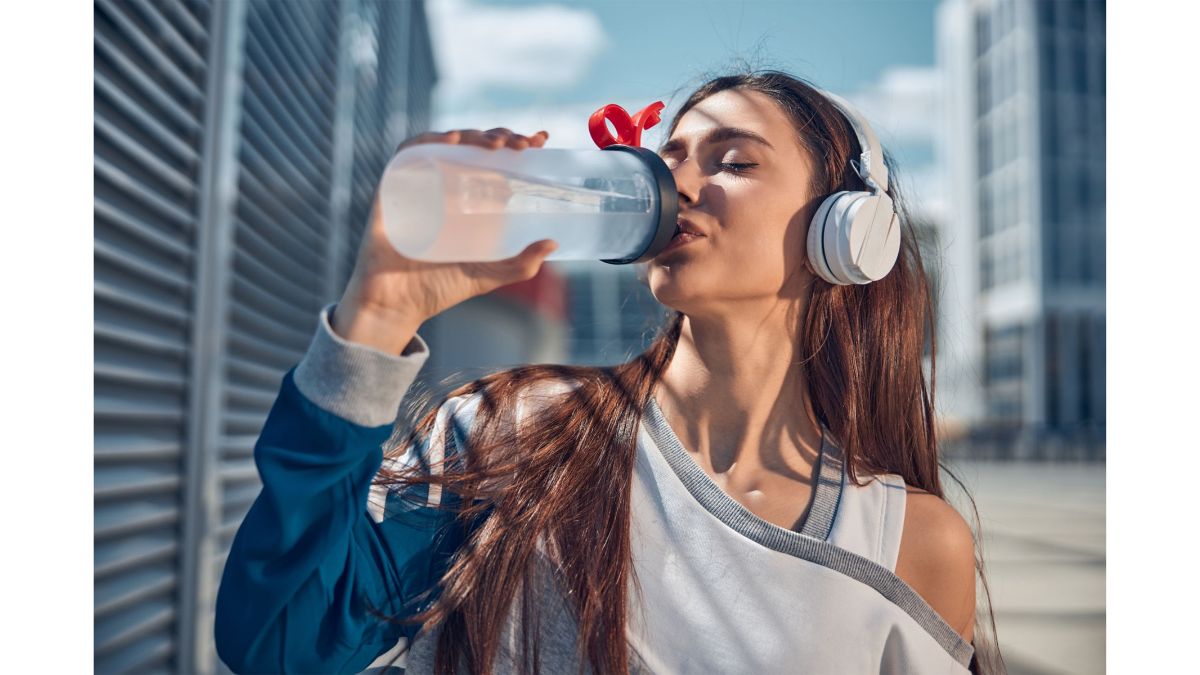- By Prerna Targhotra
- Fri, 12 Apr 2024 02:55 PM (IST)
- Source:JND
Does Water Cause Bloating: Water is essential for life, supporting various bodily functions including digestion, nutrient absorption, and waste elimination. However, the relationship between water consumption and bloating is nuanced, with water potentially playing both a preventative and causative role in bloating. Bloating is a common and uncomfortable condition where the belly feels full and tight, often due to gas or other digestive issues.
In a conversation with Jagran English, R. Sarathchandra Gorantla, Consultant Gastroenterologist, Hepatologist & Advanced Therapeutic Endoscopist, Yashoda Hospitals Hyderabad explained that while it might seem counterintuitive, not drinking enough water can lead to bloating. Dehydration can cause the body to hold onto water, leading to puffiness and bloating. Additionally, insufficient water intake can result in constipation, as water is necessary to soften stools and support regular bowel movements. When stools become hard and dry, they are more difficult to pass, which can cause the abdomen to feel bloated.
Does Water Cause Bloating?
Conversely, drinking too much water too quickly can also contribute to bloating. The kidneys have a limit on how much water they can process at a time, approximately 800 to 1,000 millilitres per hour. Consuming water beyond this capacity can lead to a temporary excess of water in the body, causing cells to swell and leading to a sensation of bloating. This condition is particularly noticeable when large volumes of water are consumed in a short period, leading to a stomach full of water and a bloated feeling.
ALSO READ: 5 Healthy Drinks That You Can Consume Post-Meals For Better Digestion
According to Gorantla, certain individuals may experience bloating as a result of drinking carbonated beverages, which contain dissolved gas that can be released in the stomach, contributing to bloating and discomfort. While this is not directly related to the consumption of still water, it highlights how fluid intake can influence bloating.

Does Water Cause Bloating (Image Credits: Canva)
It's also important to consider the timing and manner of water consumption. Drinking water before meals can aid digestion and prevent overeating by promoting a feeling of fullness. However, drinking large amounts of water during or immediately after meals can dilute stomach acid, potentially slowing digestion and contributing to bloating.
Dr Gorantla said that while water is crucial for maintaining healthy digestion and preventing constipation, both insufficient and excessive intake can lead to bloating. To minimise the risk of bloating, it is recommended to drink water steadily throughout the day, rather than consuming large amounts in a short period. Additionally, paying attention to the body's signals of thirst and hydration, and adjusting water intake accordingly, can help manage and prevent bloating.

